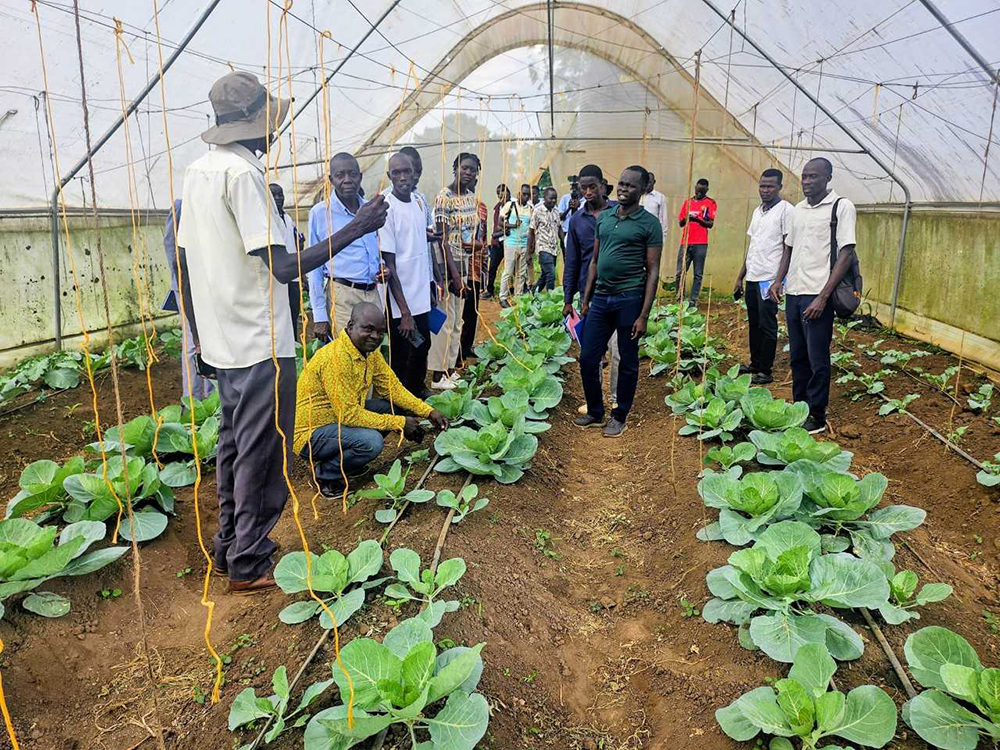Countrywide training to improve agri-science journalism begins
According to Frank Mugabi, the senior communications officer at NARO, the aim is to ensure that information from research is accurately reported.
The team in a group photo after the training in Lira city. (Courtesy photos)
________________
The National Agricultural Research Organisation (NARO) has embarked on a countrywide training programme for journalists to enhance their knowledge in agricultural research.
The initiative kicked off on July 23, 2025, with journalists from the Lango sub-region at Gracious Palace Hotel in Lira city.
According to Frank Mugabi, the senior communications officer at NARO, the aim is to ensure that information from research is accurately reported.
“Journalists, like any other professionals, require access to facts and figures to ensure accuracy in their work. As an agricultural research organisation, we place a premium on accuracy because we generate technologies for a sector that occupies the majority of Ugandans,” Mugabi added.
During the training, participants were introduced to NARO’s governance structure, its network of research and development institutes, and their various programme areas. Highlights included recent groundbreaking research outputs such as the newly developed anti-tick vaccine, improved seed and crop varieties, and livestock breeds that address challenges such as climate change, pests, and disease.
The journalists also visited the Ngetta Zonal Agricultural Research and Development Institute (Ngetta ZARDI), one of NARO’s nine ZARDIs, which specialises in adaptive research tailored to Uganda’s nine agro-ecological zones.
In addition, participants gained insights into the work of the seven National Agricultural Research Institutes (NARIs), which focus on nationally strategic research themes such as crops, livestock, fisheries and aquaculture, forestry, coffee and cocoa, semi-arid agriculture, and laboratory services.

“By connecting journalists with scientists and field-based research, the training aims to foster evidence-based reporting that informs public policy, influences behaviour change among farmers, and increases uptake of research innovations,” he added.
The journalists appreciated the new knowledge they had learnt about NARO.
“The training and field experience were educative. I learnt the importance of the NARO anti-tick vaccine. I will do my best to spread the knowledge to our audience,” Auma Winnie, a reporter with Unity FM in Lira town, noted, adding: “I truly appreciate NARO for the training and advise that more media engagements are done.”
“This session greatly enhanced my agri-journalism skills, deepening my understanding of agricultural research, especially the anti-tick vaccine’s role in livestock health and farmer livelihoods. The firsthand exposure to NARO’s innovations helped me grasp how science-driven solutions are developed and applied,” Atim Nancy, a journalist with Q FM in Lira, said.
The chairperson of the Lango United Journalists Association, Patrick Okino, said: “The training organised by NARO is the first of its kind and the beginning of a long partnership between the media in Lango and the organisation. This means NARO values and underscores vital roles played by the media in disseminating information on research, science, technology and innovation.”
Similar trainings will be rolled out in other regions, with the goal of building a network of agricultural media champions who can effectively report on research and catalyse positive change in the sector.